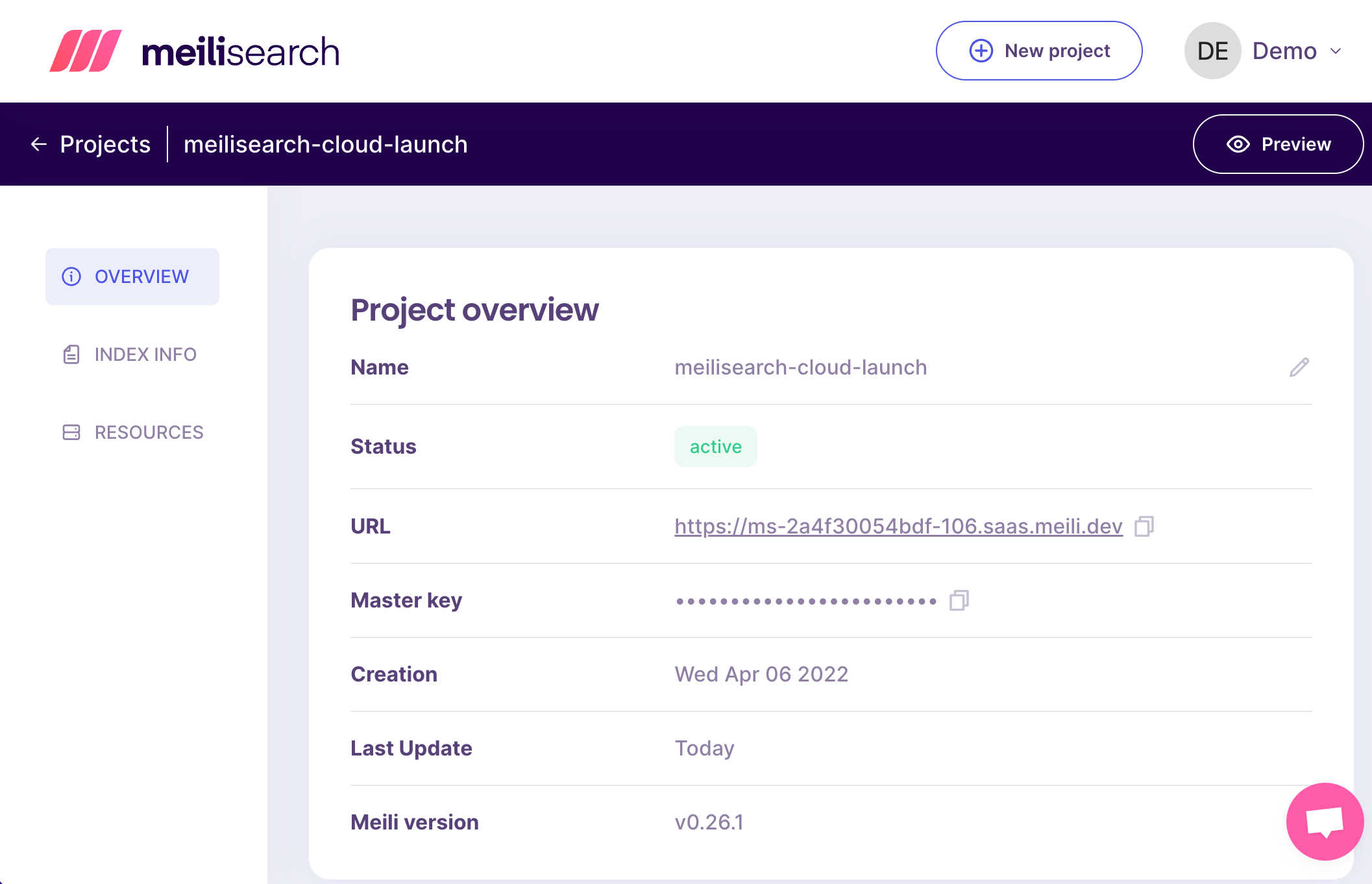We founded Meilisearch with a simple idea: what if we could take the top-of-the-line instant search experience found only in the most expensive websites and apps, make it affordable and accessible, and bring it to the rest of the internet?
Over time, this dream transformed into a mission and then into reality. We hired developers, partnered with investors, and, before we knew it, we had an effective, flexible, and—most importantly—convenient search solution.
Our code was open-source from the beginning—this was an obvious decision since we were already open-source contributors. What was less obvious then was that open-source would become one of our greatest strengths as a software company and significantly accelerate Meilisearch's adoption. However, to become a truly accessible and widespread project capable of reshaping the world of search, Meilisearch needed high-quality SDK wrappers, libraries, tools, documentation, and support—all of which came with a price tag. It was clear that we needed to come up with a monetization solution, one that wouldn’t compromise the trust we’ve built with our open-source community.
There are many ways to monetize around open source software development, but one immediately stood out: a cloud offering. It appealed to us not just because some Meilisearch users were already asking for it, but because it would enable us to keep improving our open-source search engine. Unlike some options that provide a parallel paid product with access to exclusive features, this approach allows us to build a product on top of the open-source project.
For businesses and individuals that want to quickly create a best-in-class search experience, we can offer the convenience of Meilisearch Cloud; for everyone else, we can offer our fully open-source search engine with all the features funded by our paid clients. This follows our bottom-up approach and helps us make sure we are constantly catering to a larger audience.
This is what we’ve been hard at work on over the past few months: Meilisearch Cloud, our Software-as-a-Service offering.
The development of Meilisearch Cloud
The road to Meilisearch Cloud started eight months ago when we gave Samuel—whom you might have seen on GitHub or Slack— Léna and Nico a mission to make a proof-of-concept application pushing the limits of what we could technically build. They created a sandbox that allows anyone to try Meilisearch for free for 48 hours.
Using this first experience, we began working on our cloud offering. Along the way, we onboarded a few users, did some UX testing, improved the UI, and added features to make it easy to update and manage Meilisearch instances.

We designed our pricing for simplicity and based costs on the amount of resources allocated to the Meilisearch instance. We quickly understood that this model wouldn’t fit everyone’s needs, so one of our next steps will be to develop a “serverless” offering with pricing based on API consumption.
The private launch
Throughout February and March we have been quietly onboarding people and taking them off the waiting list. Today, some companies are already running Meilisearch Cloud in production, and we are now onboarding all the remaining companies registered on the waiting list.
If you are one of them, we ask for just a bit more patience. We have more than a thousand applications to get through, and we want to make sure we maintain the same great experience you already have with Meilisearch. We’ll try to onboard everyone in the next four weeks.
Open-source vs. Cloud
We could not be more excited to announce Meilisearch Cloud and bring our search engine to a whole new group of users. Still, this process hasn’t been without its challenges.
We care deeply about accessibility, transparency, collaboration, and learning. Open source values have become a part of our company and the way we work in a way we never imagined. At the same time, something that’s not often talked about is that open-source development is not free: the labor of developers, technical writers, support engineers, and myriad other contributors must be fairly compensated so these people can continue maintaining and improving a project.
By creating Meilisearch Cloud, we have chosen to position ourselves in the middle of the open-source and corporate worlds. We want the best of both: the impact and growth rate allowed by a paid product, with the transparency, accessibility, and strong ethical core provided by open source.
Conclusion
This is a big step for Meilisearch as this will be our first paid offering. If you would like to try it, you can still register on the waiting list or wait for the public release planned a few weeks from now.
You can always star our repositories or share our work if you want to support us. See you on Slack or GitHub; always happy to answer your questions regarding what we are building :)
PS: We are recruiting a full stack software engineer to help us with our cloud offering!
